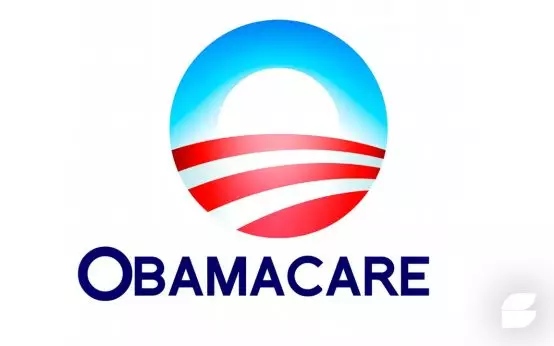If you’ve been exploring the world of commercial property leasing, chances are you’ve come across the term “Triple Net Lease” or NNN.
It may sound like some fancy finance jargon, but fear not! Today, we’re going to delve deep into the realm of Triple Net Lease and uncover its hidden gems.
Imagine you’ve got a commercial property – it could be a retail space, office building, or an industrial park. Now, you’ve got a potential tenant who’s eager to occupy your space.
Instead of opting for a standard lease agreement where the landlord covers all expenses, you can offer them a Triple Net Lease. But what does that really mean?
The basics of NNN Lease

In a nutshell, a Triple Net Lease is a lease agreement that shifts some of the operating expenses from the landlord to the tenant. These expenses typically include property taxes, insurance, and maintenance costs. In simpler terms, the tenant not only pays the base rent but also shoulders a portion of the property’s ongoing expenses. It’s like teamwork in the world of real estate!
The three “N”s unraveled
Net Property Taxes: When you’ve got a Triple Net Lease in play, the responsibility of paying property taxes falls squarely on the tenant’s shoulders. You might wonder, why would anyone want to take on such a financial burden? Well, for tenants who plan to occupy the space for an extended period, it offers predictability and control over their costs.
Net Insurance Premiums: Another “N” stands for insurance. With a Triple Net Lease, the tenant is required to pay their share of insurance premiums. This covers not only the property itself but also liability insurance, protecting both the landlord and tenant from unforeseen incidents.
Net Maintenance Costs: Last but not least, the final “N” represents maintenance costs. Instead of the landlord being solely responsible for the property’s upkeep, the tenant chips in to keep things in tip-top shape. This could include anything from repairs and landscaping to janitorial services.
Benefits galore: What’s in it for landlords and tenants?
As with any lease structure, Triple Net Lease comes with its fair share of advantages and disadvantages. Let’s focus on the positives first:
For property owners, Triple Net Leases can be a boon. By offloading some of the expenses onto the tenant, landlords can enjoy a more predictable cash flow. With taxes, insurance, and maintenance costs covered by the tenant, landlords can better forecast their income.
Tenants who opt for NNN leases often have a long-term vision for their business. It provides stability and helps them better forecast their operational costs over time. Additionally, it gives them more control over the property’s maintenance, ensuring it aligns with their specific needs.
Triple Net Leases promote a sense of shared responsibility between landlords and tenants. Since both parties have a vested interest in the property’s success, they’re more likely to collaborate on maintaining the property’s value and overall appeal.
Potential drawbacks of triple net lease
While Triple Net Lease offers enticing benefits, it’s essential to consider the potential drawbacks as well:
Market Volatility: Economic fluctuations can impact property taxes and insurance costs, leaving tenants vulnerable to unexpected spikes in expenses.
Property Management: Though tenants handle maintenance, overseeing the property’s overall management can become a burden. It’s crucial to outline clear responsibilities in the lease agreement.
Flexibility Constraints: Tenants might feel restricted in making alterations or improvements to the property due to shared responsibilities with the landlord.
Is triple net lease for you?

As with any real estate decision, there’s no one-size-fits-all answer. Whether you’re a landlord or a tenant, the choice of opting for a Triple Net Lease should align with your long-term goals and risk appetite.
For Landlords: If you prefer a hands-off approach to property management and seek a more stable cash flow, Triple Net Lease might be your ideal choice. However, it’s crucial to select reliable tenants and have a clear lease agreement that outlines responsibilities.
For Tenants: If you’re in it for the long haul and want greater control over the property you occupy, NNN leases can be a fantastic option. Just ensure you’re prepared for potential cost fluctuations and negotiate lease terms that offer some flexibility.
So there you have it, folks! Triple Net Lease is like a real estate dance where landlords and tenants perform a synchronized routine. By sharing responsibilities, they not only make the partnership stronger but also create an environment of long-term stability and financial predictability.



 How Much Does Obamacare Insurance Cost in 2025? | Compare Affordable ACA Plans <p class='sec-title' style=' font-weight: normal; line-height: 1.9rem !important; font-size: 17px !important;'> A Complete Breakdown of ACA Premiums, Hidden Costs, and Smart Saving Tips </p>
How Much Does Obamacare Insurance Cost in 2025? | Compare Affordable ACA Plans <p class='sec-title' style=' font-weight: normal; line-height: 1.9rem !important; font-size: 17px !important;'> A Complete Breakdown of ACA Premiums, Hidden Costs, and Smart Saving Tips </p>  Direct Indexing: What It Is, How It Works <p class='sec-title' style=' font-weight: normal; line-height: 1.9rem !important; font-size: 17px !important;'> The Future of Personalized Investing with Tax Efficiency and Higher Returns </p>
Direct Indexing: What It Is, How It Works <p class='sec-title' style=' font-weight: normal; line-height: 1.9rem !important; font-size: 17px !important;'> The Future of Personalized Investing with Tax Efficiency and Higher Returns </p>  Top 15 Military Discounts Over 10% You Shouldn’t Miss in 2025 <p class='sec-title' style=' font-weight: normal; line-height: 1.9rem !important; font-size: 17px !important;'> Save Big With These Overlooked & High-Value Military Perks </p>
Top 15 Military Discounts Over 10% You Shouldn’t Miss in 2025 <p class='sec-title' style=' font-weight: normal; line-height: 1.9rem !important; font-size: 17px !important;'> Save Big With These Overlooked & High-Value Military Perks </p>